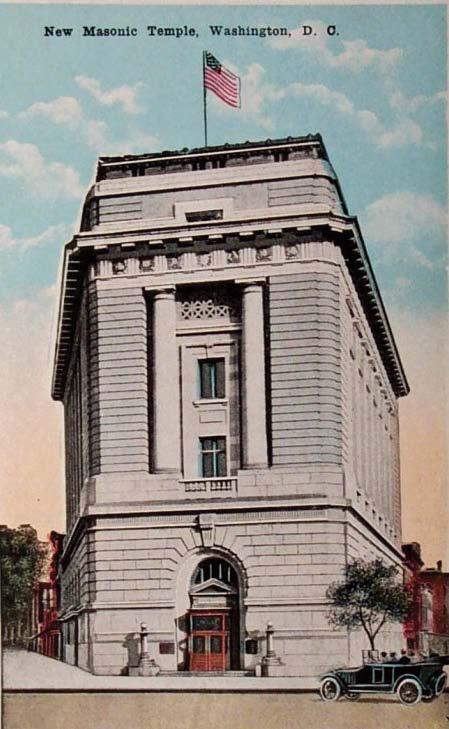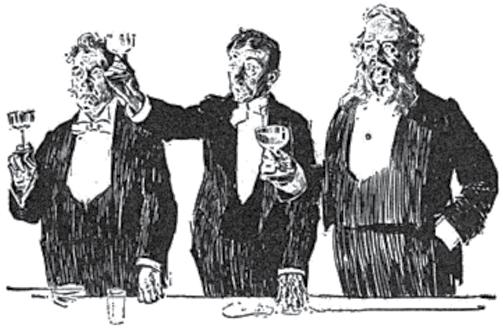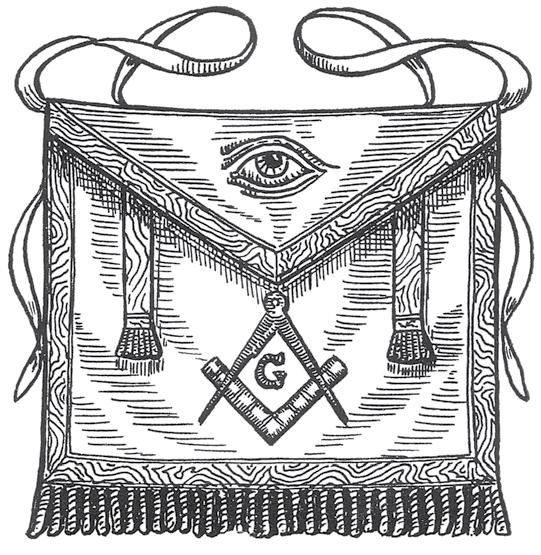
6 minute read
The Sweet Sound of Masonic Music
Robert E. Redding
Albert Pike Lodge No. 33
Ihave been invited, as the former Chairman of Great attention continues to be given musically to the Grand Lodge Music Committee, to share my both Masonic memorial services and lodges of sorthoughts on the role of music in the activities of row. While music, in the form of specific songs and the Craft in an effort to raise interest in Masonic melodies, was never legislated officially or made Music and how it can serve as an effective element a mandatory part of the rituals themselves, it was in the overall work of our Blue Lodges. It is there made a part of the “spiritual furnishings” of the where we discover many brethren with musical tallodge, degrees, and other Masonic ceremonials. Thus, ents, perhaps unused for centuries, music has for a time. There is a been a valuable part of considerable history of Masonic work. developing musical programs in the District of Columbia for both lodge meetings and ritualistic ceremonials. In the Scottish Rite, we Music is a moral law. It gives soul to the universe, Wings to the mind, Let’s think together for a moment of music as a part of nature. As Freemasons, we have come to know that there are seven basic liberal arts say that music “estabFlight to the imagination, and sciences serving lishes mood, touches the needs of mankind. the heart and elevates A charm to sadness, They are Grammar, the mind”. Let us reflect briefly on the fact that Gaiety and life to everything. Rhetoric, Arithmetic, Logic, Geometry, music has actually has It is the essence of order and Astronomy, and the gone beyond these uses in the Craft and Leads to all that is good, focus of this article, Music. Music, in particis a major expression Just and beautiful, ular, is recommended of Masonic philosophy. to the attention of Music “stimulates the Of which it is the invisible, Masons because as mind and elevates the spirit”, and brings value Nevertheless dazzling, the “concord of sweet sounds’ elevates the and pleasure to all Passionate and eternal form. generous sentiments of Masonic endeavors. the soul, so should the From the earliest days of Freemasonry, music was never omitted from either lodge meetings, degree work or other rites, such as cornerstone Freemasonry, 1852, p.318). concord of good feeling reign among the brethren.” (Albert G. Mackey’s A Lexicon of ceremonies, building dedications, the installation of Other authors have also emphasized the imporofficers, and memorial services. During the latter, tance of music. Dr. Rex R. Hutchens, 33°, Grand musical enhancements in addition to hymns might Cross, in his book A Bridge to Light states: “From include bugle calls, or muffled drums. “Auld Lang the discovery of harmonics by Pythagoras… the Syne,” for instance, was not written by Bro. Robert ancients… created the idea of ‘the Music of the Burns to be sung on New Year’s Eve but to be sung at Spheres’ or harmony in the universe; a sort of music the closing of the meeting of his Blue Lodge. of God.” Similarly Sir Knight John W. Dadmun in The Masonic Choir states: “Music is an element of power
that we Masons cannot afford to dispense with. It will add, incalculably, to the interest of lodge meetings, and do much to preserve the ancient landmarks of the order.” Also, a passage in Masonic Odes says: “The three symbolic degrees of Masonry exemplified without the use of music, is, to say the least, robbing Masonry of one of its most important factors.” Finally, Chester W. Mabie in the Royal Arch Melodia notes: “It has been urged with some force, that the beauties of the Masonic ritual cannot be evinced and stamped indelibly on the mind of the novitiate without the aid of music; the soul inspiring strains of which add power to the work, adorning its everliving truths with a grandeur that no other art can supply, stealing upon the senses and elevating the feelings so that purity of conception, without which, to those that tread the road that leadeth to exultation, light is but darkness and truth a shadow.” Albert Pike, himself a fine musician noted for his skill in playing violin, greatly admired music and made it an integral part of many Scottish Rite degrees, often specifying specific melodies. Every
Q&A with Albert Pike continued from page 9
fierce, passionate fire, negotiated excess, full blooded dedication leaves prints in dry sand. Masonry was never intended to be practiced in the pub room. Since its earliest days it met on the floor above it and suffers much in lower altitudes.
Galitzin: Please tell us about your great work called Morals and Dogma Pike: The book was meant to be an effort, an architectural sketch for building design for each of you to add to your arsenal of knowing. And only a starting point was it meant to be, a foundational primer with each brother’s “most and best” to follow. The Craft dies in the anticipation. Instead Morals and Dogma must be the least read and most ignored object in a juvenile’s play chest. This work is spoken of with awe, verbally respected, its pages opened only by the momentarily curious, more in a state of guilt than firm resolve of mastery. The Craft has failed to advance its learning abilities past juvenile, adolescent grades. In such a state of intellectual underdevelopment works like Morals and Dogma generate initial curiosity, then sense of guilt, ending in a sense of defeat. “Brother Pike,”, you say, “not all are scholars. Some think, others build. It takes all kinds to make a Masonic lodge.” I say, yes, as long as the builder can read, does read and sustain his interest in that reading long enough to lodge would do well to take this to heart and make a special effort to include appropriate musical interludes and enhancement to the degrees. To do this is to touch the heart, move the mind, and lift the soul of all involved for, as an anonymous author once wrote of this sublime art: “Music is a moral law. It gives soul to the universe, wings to the mind, flight to the imagination, and charm to sadness, gaiety and life to everything. It is the essence of order and leads to all that is good, just and beautiful, of which it is the invisible, nevertheless dazzling, passionate and eternal form.”
Clearly, Masonic music is very important. Its value has been proved by musical legends of the past such as Brothers Mozart, Sebelius, Sousa, and Berlin. Its value continues today through the musical skills and contributions of others. To those other Brethren who possess musical talents, but for whatever reason, have not made them known, I urge you to join this great Masonic tradition and mission. Your talents are needed and will be appreciated. The time to become active is now! n
advance his building expertise. Then, and only then, is he in touch with the lines of information through which light travels that interpenetrates all fibers of matter. He then can stand firm in full understanding of the Grand Architect’s designs, holding his thoughts clear even in the thick of his surrounding community’s disagreement with him. Then he stands as an upright builder. In the absence of that, he undertakes to build the Temple of The Lord in a state of delusion, pretense and fraud. You, in your professions, succeed by the dint of your skill and relentless applied learning. Then why is Masonry the playground of the dull and insipid, where tolerance is practiced to excess, tolerance toward some who read much, read some, read none, evolve much, evolve some, evolve none? Does it set the standards of brotherly behavior or is it, rather, misbehavior? Professional standards of knowing and the frequent testing of its command is a minimal ingredient of success in the profane world. Why should the Mason demand less of himself and of his brethren? Forget Morals and Dogma… it pleases the illiterate to have it in his collection. Better it, exceed it, replace it, do something that overshadows its limitations. Allow your spirit to jump to the challenge of creating something so luminous to make my work take its proper place amongst works for beginners. n








